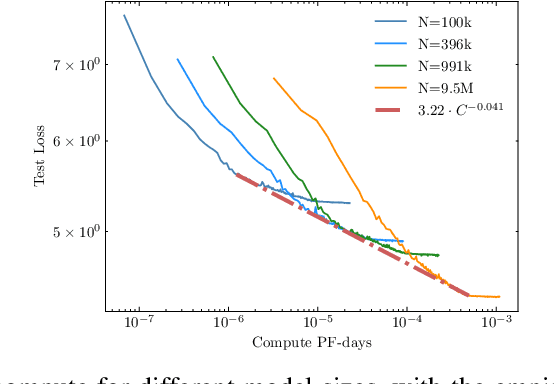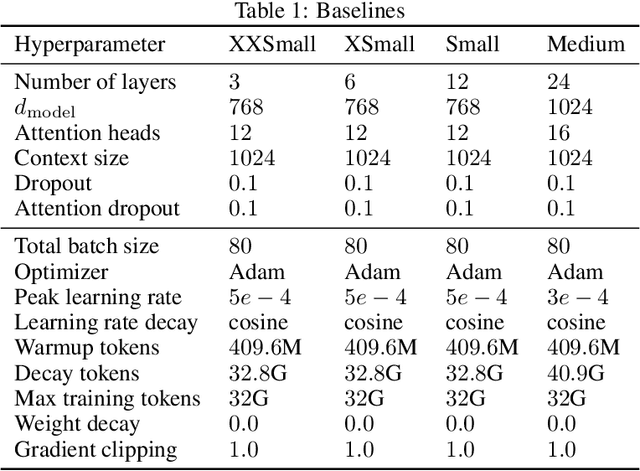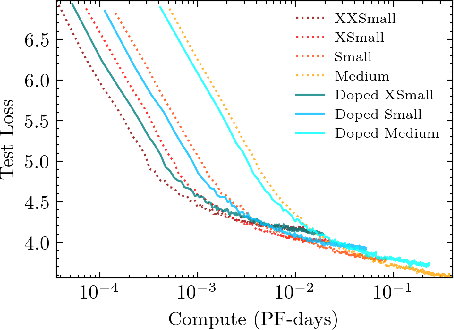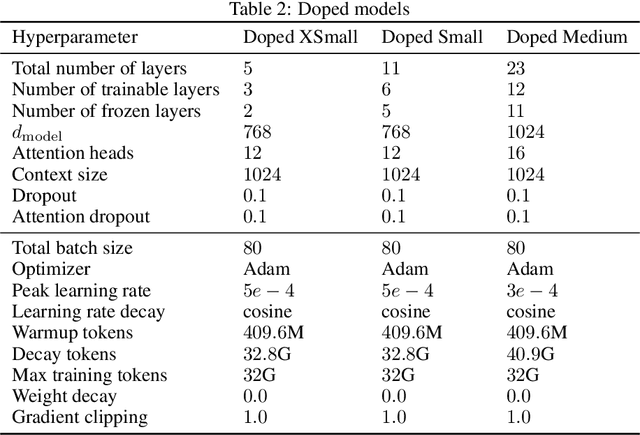Is the Number of Trainable Parameters All That Actually Matters?
Paper and Code
Sep 24, 2021



Recent work has identified simple empirical scaling laws for language models, linking compute budget, dataset size, model size, and autoregressive modeling loss. The validity of these simple power laws across orders of magnitude in model scale provides compelling evidence that larger models are also more capable models. However, scaling up models under the constraints of hardware and infrastructure is no easy feat, and rapidly becomes a hard and expensive engineering problem. We investigate ways to tentatively cheat scaling laws, and train larger models for cheaper. We emulate an increase in effective parameters, using efficient approximations: either by doping the models with frozen random parameters, or by using fast structured transforms in place of dense linear layers. We find that the scaling relationship between test loss and compute depends only on the actual number of trainable parameters; scaling laws cannot be deceived by spurious parameters.
 Add to Chrome
Add to Chrome Add to Firefox
Add to Firefox Add to Edge
Add to Edge